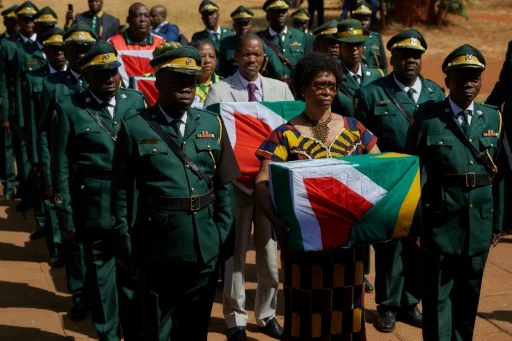The remains of 42 South African freedom fighters who died in exile in Zimbabwe and Zambia during the struggle against apartheid were repatriated to their home country on Wednesday. The solemn ceremony took place at Waterkloof Air Force Base in Pretoria, where government officials and family members received the remains.

This repatriation is part of a broader government initiative to bring closure to families whose loved ones died abroad while serving in the underground structures of both the African National Congress (ANC) and Pan Africanist Congress (PAC). Many activists left South Africa during the apartheid era to receive military training or to avoid arrest for their anti-apartheid activities, with Zimbabwe and Zambia serving as key bases for underground operations.
Among the repatriated remains were those of prominent struggle stalwarts Duma Nokwe, Florence Mophosho, and Basil February. These individuals played significant roles in the fight against white minority rule, which ended in 1994.

Deputy President Paul Mashatile, speaking at a Heritage Day event on Tuesday, emphasized the educational importance of this repatriation. “As a national memory project, this initiative aims to commemorate, celebrate, educate, promote, preserve, conserve, and provide a durable testament to South Africa’s road to freedom,” Mashatile stated.

President Cyril Ramaphosa is scheduled to host a homecoming ceremony for the repatriated remains on Friday before they are handed over to families for reburial. This event is expected to be a poignant moment of national reflection on the sacrifices made during the anti-apartheid struggle.
The government has announced that this repatriation effort is ongoing, with plans to bring home the remains of other South Africans from countries including Lesotho, Ethiopia, Tanzania, Angola, and Russia. Deputy Defense Minister Bantu Holomisa expressed hope that this process would help more families find closure, stating, “I hope this process will culminate in getting more people in other countries who died under difficult conditions. We welcome them back to connect with their families.”



